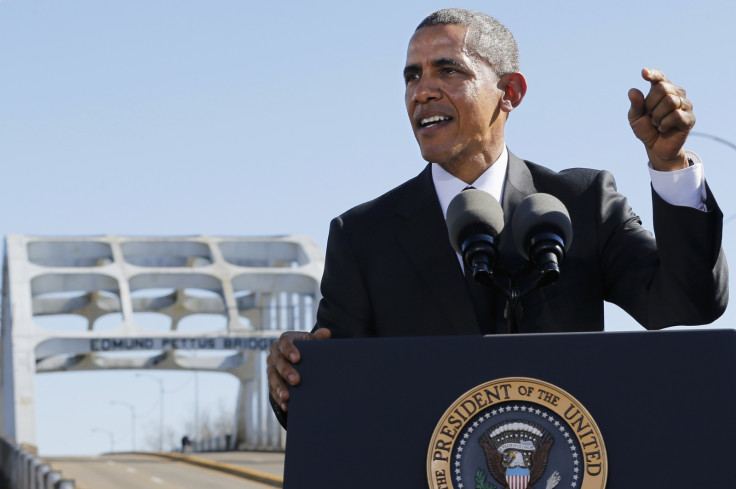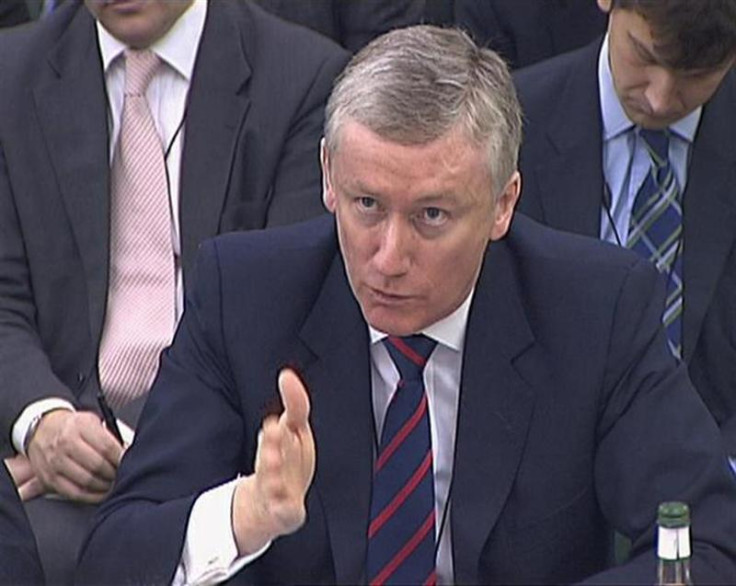Stefan Stern: Leaders must resonate with their followers like 'storyteller-in-chief' Barack Obama
Leaders need to tell stories: accurate ones, preferably; truthful ones, naturally. They should be stories people can understand and believe in. You cannot be a leader without followers, and people can only follow enthusiastically when they know who it is standing there in front of them.
On 7 March, US President Barack Obama made another fine speech, this time in Selma, Alabama, the scene 50 years ago of "Bloody Sunday", when over 600 non-violent protesters were attacked by state troopers as they tried to march from Selma to Montgomery to claim voting rights.

Speeches alone rarely change things. But they can establish a new understanding and galvanise supporters. In his final term in office, Obama is avoiding the "lame duck" tag, so far, by reasserting his leadership, whether with the threat of vetoes or, like earlier in March, with important rhetorical interventions.
In his speech, Obama told a moving story. "The Americans who crossed this bridge were not physically imposing," he said. "But they gave courage to millions. They held no elected office. But they led a nation. They marched as Americans who had endured hundreds of years of brutal violence and countless daily indignities – but they didn't seek special treatment, just the equal treatment promised to them almost a century before.
"What they did here will reverberate through the ages. Not because the change they won was preordained; not because their victory was complete but because they proved that non-violent change is possible; that love and hope can conquer hate."
Past, present, future: Obama placed himself and his fellow citizens at the heart of an ongoing story, an ongoing struggle. He provided a context and meaning. That is leadership. We don't see it very often, do we?
Broadcaster Gavin Esler published an excellent book on leadership a couple of years ago called Lessons From The Top, in which he draws on three decades of experience watching leaders close up in his role as a senior BBC correspondent and presenter. He also sees the leader as a kind of storyteller-in-chief.
Three parts to successful leadership stories
"All successful leadership stories involve three parts," he writes. "First, the leader has to explain 'Who am I?' as a person. Then he or she outlines 'Who are we?' as a group to followers or potential followers. Finally, the leader tells us 'Where will my leadership take us?' in our common purpose. A convincing leader will make these stories buzz in our heads in a way that is unforgettable."
Esler sets the bar high – but that is what you do after a career spent interviewing Bill Clinton, Angela Merkel, Tony Blair and, yes, Dolly Parton. He unpacks rhetorical tricks and narrative feints. Clinton he got to see close up and his analysis of how the Comeback Kid kept coming back is especially interesting.
In 1992, when scandal over his affair with Gennifer Flowers threatened to undermine his bid for the presidency, Clinton decided to give a "confessional" TV interview alongside his wife. It saved and made his campaign.
"I have said things to you tonight that no American politician ever has," he told his interviewer. It was an extraordinary performance: apparently contrite and humble, partially revelatory, but also confident and assertive. Clinton signalled his newness and special gifts even while effectively admitting to adultery. He told his country a compelling story.

How different is the sad tale of the former chief executive of the Royal Bank of Scotland, the former knight of the realm, Fred Goodwin. Goodwin had enjoyed being known as "Fred the Shred", Esler writes. "He seemed to revel in both his power and his reputation for ruthlessness. [But] he never told a leadership story that could cope with failure.
"His tactics were based on ruthlessly cutting costs. His strategy involved taking over other banks. His objective was to become a world player in banking. But somewhere along the line he failed to see that the true objective of any great bank is to be trusted, reliable and, of course, solvent."
Obama raised America's sights once again by remembering the heroism of the people of Selma 50 years ago. And he called for renewed effort.
He said: "What greater expression of faith in the American experiment than this; what greater form of patriotism is there; than the belief that America is not yet finished, that we are strong enough to be self-critical, that each successive generation can look upon our imperfections and decide that it is in our power to remake this nation to more closely align with our highest ideals?"
Obama described what he sees as America's common purpose. "The single most powerful word in our democracy is the word 'We'. We The People. We Shall Overcome. Yes We Can. It is owned by no one. It belongs to everyone. Oh, what a glorious task we are given, to continually try to improve this great nation of ours," he said.
The story of America is still being written but under its current leader, the country appears to be in good hands.
Stefan Stern is a business, management and politics writer. He writes for The Guardian and The Financial Times and is a visiting professor at Cass Business School.
© Copyright IBTimes 2025. All rights reserved.






















